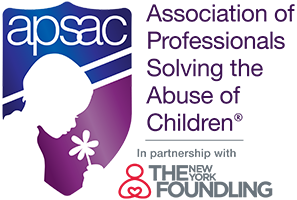
Pacific Time
This is the link to register for APSAC's Pre-Conference Institutes at the San Diego International Conference on Child and Family Maltreatment on Sunday January 21st, 2024
Town & Country Room Reservations
Member Registration: $225
Non-Member Registration: $300
Pre-Conference Institutes CEs: $40
Full Conference CEs: $100
The Prevention of Internet Sexual Exploitation
This workshop will describe the varieties of Internet sexual exploitation, and discuss the various strategies being applied to prevent and interrupt it. It will focus particularly on the virtues and challenges of applying prevention education to protect children and youth.
Workshop leader: David Finkelhor, Ph.D. Resources
Moving Upstream to Prevent Child Sexual Abuse
In this presentation, Dr. Merrick will discuss historical approaches to the problem of child sexual abuse which have largely included after-the-fact services for children and criminalization of child sexual abuse perpetrators. In addition, Dr. Merrick will discuss prevention approaches including providing children and adults with education on the signs, symptoms, and self-protection strategies. A majority of the presentation will outline a public health approach to the prevention of child sexual abuse with particular focus on the need for policy and social norms change.
Workshop leader: Melissa Merrick, Ph.D. Resources
Are We Really Better Together? Sustaining Successful Multi-Disciplinary Investigations of Child Sexual Abuse
A multi-disciplinary trauma informed response coordinated by Children's Advocacy Centers is the established gold standard in responding to child sexual abuse. This workshop will highlight the benefits, weaknesses, and lessons learned, and attempt to translate the latest research for best practices in the multi-disciplinary investigative response. Sometimes acknowledging and understanding each other's professional strengths and limitations is the crux for solving cases and for job satisfaction.
Workshop leader: Stacie LeBlanc, JD, MEd Resources
An Overview of Evidence-Based Trauma Interventions for Children and Adolescents Impacted by Child Sexual Abuse
The significant short-term and long-term impact of child sexual abuse on children and adolescents is well documented and it is therefore critical that youth affected by sexual abuse receive effective treatment. Fortunately, the number of empirically supported trauma-focused interventions for children and adolescents has been increasing. This workshop will briefly define evidence-based treatment in general and then provide an overview of empirically supported interventions designed to ameliorate the negative effects of child sexual abuse. There will be a particular focus on Trauma-focused Cognitive- Behavioral Therapy, a trauma treatment model initially designed to address the impact of sexual abuse on youth and their non-offending caregivers. This model, co-developed by Esther Deblinger, Ph.D., has demonstrated its efficacy in over 24 randomized controlled trials and has been the subject of over 100 peer reviewed publications.
Workshop leader: Elisabeth Pollio, Ph.D. Resources
Best Practices in Assessing and Treating Children Who Initiate Problematic Sexual Behavior with Other Children
Children ages 3-12 engage in sexual behaviors that range from normative to problematic and harmful. Professionals often misinterpret normative behaviors in children and often are unsure how to effectively address genuine problematic sexual behaviors. As such, many children with problematic sexual behavior do not receive the types of services that support healthy behavioral functioning and healing within the family. Research suggests that children with problematic sexual behavior are highly responsive to treatment that includes their caregivers and addresses priority needs identified in initial and on-going assessment. This workshop will provide information to help professionals distinguish normative from problematic sexual behavior in children, identify assessment strategies to support treatment planning, and identify research supported treatment elements known to reduce or eliminate problematic sexual behavior in children.
Workshop leader: Jimmy Widdifield, Jr., MA Resources
Continuing education credits are available for Institute attendees at $40/person/day if attending APSAC Institutes only or $100/person if combined with a full San Diego Conference registration. This expense is the responsibility of the conference attendee. To pay for continuing education credits please go to the conference onsite registration desk. Any questions regarding CEs should be directed to sdconference@rchsd.org.
Cancellations:
No cancellations. No refunds. Registration is transferable. Requests for transfer to a future event will also be considered on a case-by-case basis. If you have any questions please email us at onlinetraining@apsac.org.
We look forward to seeing you in person at the Chadwick Center's Annual Conference! Click here for more event details.